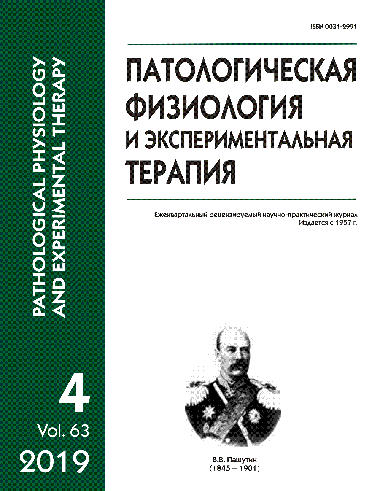Sex-related changes in the cardiovascular system in alcoholic cardiomyopathy. (An experimental study)
Abstract
Aim. To study sex-related differences of changes in the cardiovascular system in rats with alcoholic cardiomyopathy (AСMP). Methods. Alcoholic cardiomyopathy was induced in rats by offering them a 10% aqueous solution of ethyl alcohol as the only source of fluid for 24 weeks. Echocardiography was used to assess the size and inotropic function of the left ventricle. Expression of receptors and regulatory proteins in the left ventricular myocardium and thoracic aorta was determined using real-time polymerase chain reaction. Results. Comparative analysis showed that the left ventricle was much smaller in intact females than in males whereas shortening and ejection fractions of the female left ventricle were greater. Forced alcoholization for 24 weeks induced ACMP in both males and females, which was evident on echocardiogram as enlargement of the left ventricle and depression of its contractility. However, the increase in left ventricular size was considerably more pronounced in females. In biopsy samples of the left ventricle, the expression of mRNA of genes for endogenous transmitter receptors [catecholamines (β1 and β2-AR), angiotensin II (AT1-R), endothelin-1 (ETA-R) and regulatory proteins (Epac1, Epac2 and CaM) changed in the same direction in both males and females. The mRNA expression of key vasoconstrictor receptor genes (α1-R, VIA-R, ATIA-R) was increased in the female aorta but reduced in the male aorta. Conclusion. In both female and male rats, the 24-week alcohol consumption on a regular basis resulted in ACMP; however, in females, pathological changes were prognostically more adverse.






